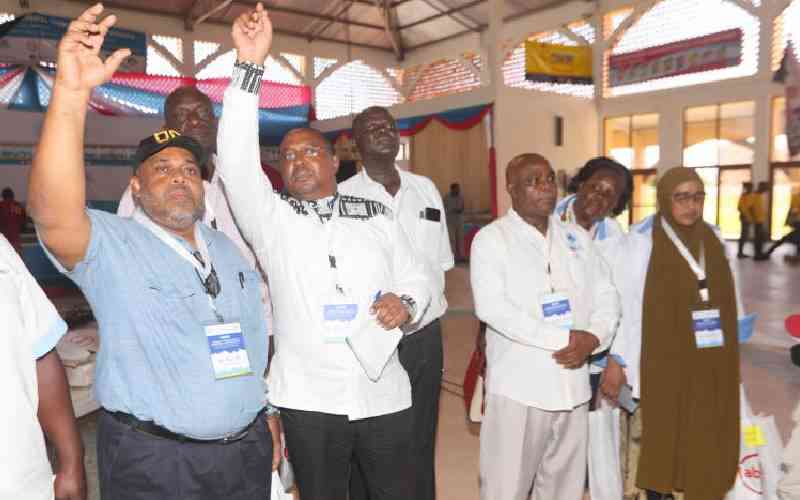×
The Standard e-Paper
Join Thousands Daily

Kenya Primary Schools head Teachers Association [KEPSHA] officials. [File, Standard]
Primary school head teachers, who are in Mombasa for their annual conference, yesterday welcomed the President's decision to domicile junior secondary in primary schools.